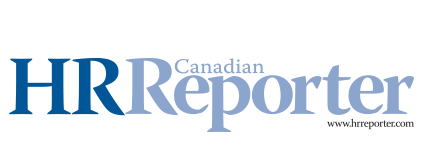Recently, Zubas Flett Lawyer, Ted Flett, spoke with John Dujay of Canadian HR Reporter. The article, which discussed whether Human Resources is prepared for a COVID resurgence, can be read below or you can view the article here.
With a COVID resurgence possible, is HR Prepared?
‘Because we’ve been through this before, the protocols and measures, the experience and knowledge are going to help us get through,’ says lawyer, offering tips.
With the fall season upon us, fears of a COVID resurgence are inevitable, as people move increasingly indoors and talk of variants intensifies.
Just today, the World Health Organization warned of “concerning trends” for the virus ahead of winter in the Northern Hemisphere, calling for increased vaccinations and surveillance.
We’ve been through this before, so what should Canadian employers be doing now to prepare?
For one, make sure emergency plans are in place, says Brad Moscato, partner at Howie, Sacks and Henry in Toronto.
“Businesses need to have these types of plans to avoid interruptions, to make sure that there’s consistency and not confusion for employees during any type of global pandemic or other crisis.”
For organizations, the sometimes difficult and anxiety-ridden days of the pandemic also provided a great lesson in corporate continuity, he says.
“Employers are in a good spot to make sure that if there is a wave – and hopefully there aren’t going to be any shutdowns – [they have] the technology, the infrastructure, the communication with employees, the health protocols, all of those things. And because we’ve been through this before, the protocols and the measures, and the experience and knowledge are going to help us get through this.”
Temporary layoff provisions during pandemic
Once that emergency plan is in place, employers might want to review critically important documents, says another lawyer.
“Look at possibly implementing new continuing-employment agreements that have appropriate temporary layoff provisions, work-from-home provisions and vaccination or booster provisions, to protect the employees and the safety of the workplace, and also set clear expectations with the employee,” says Ted Flett, principal lawyer at Zubas Flett Law in Toronto.
While it might not precipitate a round of new contracts, “you’re going to want to have policies and procedures that spell out what the nature of the working relationship is as many move through what might be another wave of COVID, with these sub-variants that are percolating, expected or anticipated to become more front and centre in the fall and winter months.”
Avoiding constructive dismissal has become even more pressing concern in the wake of COVID, says an employment lawyer.
Paid sick leaves, hybrid work help during pandemic
Besides plans and policies, employers who don’t do so already might want to offer a way to ensure COVID doesn’t easily spread in the office, says Moscato.
“Employers should be looking at paid sick leave that will discourage people from coming into the office if they’re sick. These are common things but not all employers have paid sick days and for some employees, they feel forced to come back to the office, even if they’re not feeling well.”
“Like many employers, our office is still hybrid and that’s going to lend itself to an easier transition should there be any kind of issues,” says Moscato.
“With things such as the infrastructure that many employers have in place now, the technology, the health protocols, employers are pretty well prepared for any fall surge that might occur.”
Such measures as offering PPE to employees, setting up virus screening and re-instituting physical distancing yet again should also be considered, according to Flett.
“[It’s also about] looking at environmental protection such as air filters and maybe resurrecting the Plexiglass that might have been in the workplace earlier. If that’s been taken down, it might be an opportunity to bring that out of storage.”
Protecting data from cyber crime
For many employers during the pandemic, protecting important employee and corporate data also became top of mind, he says.
“The number one thing that we have seen has been around ensuring maintenance of confidentiality at the workplace, which is easier to do when everyone’s working together and there’s an encrypted server. That can be a little harder when your employee is working from their dining room table. You’re going to want policies and procedures to help prevent that and then enforce accordingly,” says Flett.
Don’t take this aspect too lightly, says Moscato, as “there are hackers in the lurch. They’re trying to steal information, to steal money, and they’re more sophisticated than ever so employers have to be mindful of the cybersecurity plans.”
“Cybersecurity has always been there, it’s just ever more present given the increase in the use of technology in the hybrid work environment,” says Moscato.
Be very careful when setting up an employee monitoring program, warns another lawyer.
*******
If you have any questions or inquiries regarding Human Resources and COVID, contact Zubas Flett Law at 416-593-5844 or questions@employment-lawyers.ca.

